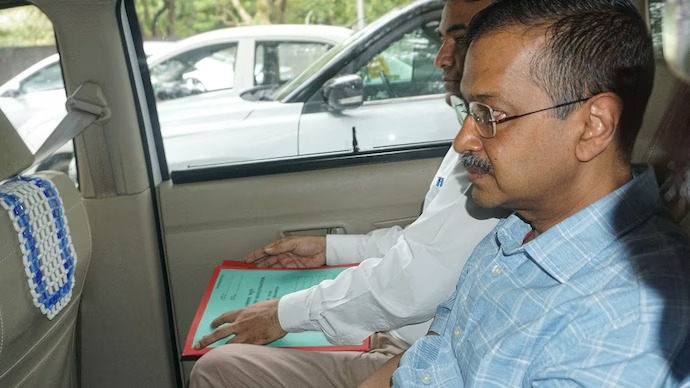The Supreme Court is set to deliver its verdict today on Delhi Chief Minister Arvind Kejriwal’s plea challenging his arrest by the Enforcement Directorate (ED) in a money-laundering case. Justices Sanjiv Khanna and Dipankar Datta, who reserved their judgment on May 17, will pronounce the ruling.
Kejriwal, who also leads the Aam Aadmi Party (AAP), was arrested by the ED on March 21 in connection with the alleged Delhi liquor policy scam. He has contested the Delhi High Court’s April 9 decision upholding his arrest, arguing there was no illegality in the process. The High Court stated the ED had little choice but to arrest Kejriwal after he repeatedly ignored summonses and refused to cooperate with the investigation.
The Supreme Court, on April 15, requested a response from the ED regarding Kejriwal’s challenge to his arrest. Subsequently, Kejriwal was granted a 21-day interim bail on May 10 by the Supreme Court to campaign for the Lok Sabha elections, with instructions to surrender on June 2, following the conclusion of the election phases.
On June 20, Kejriwal was granted bail by a Delhi trial court. However, the ED appealed this decision, describing the trial court’s ruling as “perverse,” “one-sided,” and based on irrelevant facts. The Delhi High Court imposed an interim stay on the trial court’s bail order on June 21, pending a decision on the ED’s application for interim relief. A detailed stay order was issued by the High Court on June 25.
Subsequently, Kejriwal was arrested by the Central Bureau of Investigation (CBI) in connection with the corruption case related to the alleged liquor policy scam.
Delhi Liquor Policy Case
The central probe agencies allege that irregularities occurred while modifying the Delhi government’s excise policy for 2021-22, claiming that undue favours were extended to license holders. The policy, introduced in November 2021, aimed to halt government liquor sales, allow private licenses, curb black marketing, increase government revenue, and benefit consumers. However, the policy was later scrapped, and the previous system was reinstated.

















Comments